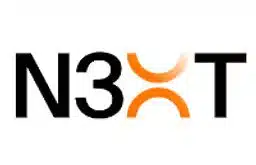Merchant acquirers and independent sales organizations took a hit in Congress this year when a reporting provision passed, but other legal threats?along with possible opportunities?await next year. That's the word from payments executives and lawyers who stay abreast of Washington affairs and who spoke at an ISO conference Wednesday in Chicago. “We're living in interesting times,” said attorney David P. Goch, lobbyist for the conference sponsor, the Electronic Transactions Association, and a partner with Webster, Chamberlain & Bean LLC in Washington, D.C. Payment processors will be required to report card sales to the Internal Revenue Service on the controversial estimate that nearly $10 billion in unreported or underreported taxable sales could be found over 10 years. The measure was part of the revenue-generating section in Congress's big mortgage relief bill. After losing the legislative fight to prevent the provision from becoming law, the card industry is now attempting to influence the rules-writing process so that regulations the U.S. Treasury Department adopts to implement the measure will be minimally onerous (Digital Transactions News, Sept. 1). Goch sounded a hopeful note about the reporting provision in recalling a recent conversation with a merchant-processing executive who suggested profit-making opportunities often arise out of what looks like a bad situation. “Someone's going to find a way to make some money on this, that's the way to look at this,” Goch said. Congress could return for a lame-duck session after the election, but if it doesn't, other bills that caused the payment card industry to sweat this year will die. They include the Credit Card Fair Fee Act of 2008, a bill that would regulate interchange. That bill got a lot of press and support from merchant groups, but as Goch predicted back in the spring (Digital Transactions News, April 17) it looks like it probably won't pass. While merchant acquirers and ISOs usually support merchants' efforts against raising credit and debit card interchange, they questioned whether the government intervention called for in the bill was the best solution. Another bill that received much less attention was H.R. 6248 sponsored by U.S. Rep. Peter Welch, D-Vt. Dubbed the Credit Card Interchange Act of 2008, the bill would amend the Truth in Lending Act with a laundry list of merchant-supported provisions. It would ban processing charges for premium cards from being higher than those for non-premium cards, ban card networks and by extension merchant acquirers from displaying prices in any way they wish, and ban networks from preventing merchants from steering customers to the merchants' preferred payment methods. It would overturn the card networks' “honor all cards” rules. Without such rules, merchants would be free to not accept cards they feel cost them too much. Goch, however, says one problem with the bill is that its language referencing interchange could be interpreted as covering broader charges, which could have implications for acquirers' and ISOs' pricing. Welch's bill was referred to the House Financial Services Committee last June and hasn't seen action since. No one knows if payment card acceptance issues will get more attention when the 111th Congress convenes in January. Most pundits believe the Democrats will strengthen their control of both houses in the Nov. 4 elections, and supposedly business-friendly Republicans haven't always come to the aid of the card industry, Goch noted. “I think next year is going to be very, very interesting,” he said. Besides Congress, acquirers and ISOs need to keep their eyes on bank regulators and states on some hot-button issues. Now that many are selling prepaid cards as new revenue-generating product lines, ISOs need to stay abreast of state legislation governing those cards, said attorney Terrence P. Maher, a partner with Baird Holm LLP in Omaha, Neb. About 35 states now regulate prepaid card disclosures, fees, expiration dates, or other features. States as well as federal bank regulators are paying more attention to the risks presented by retailers, ISOs, and other unregulated entities in selling a banking product, the prepaid card, according to Maher. “The one thing the regulators are very concerned about is the non-bank involvement,” he said.
Check Also
Block Slashes Its Workforce as It Goes All in on AI
Block is cutting its headcount by more than 40%, the company announced late Thursday during …






